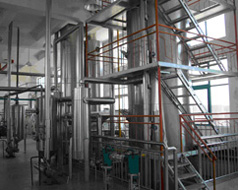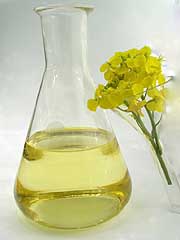- Choose professional Small Sunflower Seed Oil Refinery Line
- Professionally Designed Mini Oil Mill for Home Use
- Is Small Oil Production Line Worth for Investment?
- How to Build Small Edible Oil Production Line?
- Small Oil Mill Plant for Daily Requirement
- Small Edible Oil Refinery Plant Cost Can Be Reduced Relatively
- How to Extract Palm Oil from Palm Fruit-Oil Mill Plant
- start oil extraction factory
canola oil refining
Canola oil refining means removing phospholipids, pigments, off-flavors, free fatty acids and other impurities in the extracted canola oil. The oil that is produced during the extraction process is referred to as "crude oil" because it contains various compounds which must be removed to ensure a product with good stability and shelf-life.

With refining process, impurities like phospholipids, mucilaginous gums, free fatty acids, color pigments and fine meal particles will be added to the meal fraction to increase the feeding value (energy) and make it an even more nutritious product.
Following water precipitation and/or organic acid processing, at this time, the oil still contains color compounds which will lessen its stability. These compounds can be extracted by bleaching which does not use harsh chemicals. On the contrary, during the process of bleaching, the oil is moved through a natural, diatomaceous clay to remove color compounds and other by-products.
Deodorization is another important process in canola oil refining. Deodorization involves the use of steam distillation with the objective being the removal of any residual compounds which, if retained, could impart an adverse odor and taste to the oil. The oil produced is referred to as "refined oil".
What is Canola Oil?

Canola oil is made from canola seed. Canola oil is pressed from tiny canola seeds produced by beautiful yellow flowering plants of the Brassica family. Cabbages and cauliflower are also part of the same botanical family! Canola was bred naturally from its parent rapeseed in the early 1970s. Canola, however, is NOT rapeseed - their nutritional profiles are very different.
Consumers recognize canola oil for its nutritional attributes as it contains the lowest level of saturated fatty acids of any vegetable oil. It is high in monounsaturated fatty acids, which have been shown to reduce blood cholesterol levels, and has moderate levels of essential polyunsaturated fatty acids. It is also a rich source of vitamin E. Like all vegetable oils, canola oil is cholesterol- free.
KMEC, an ISO 9001:2008 certified company, is one of China's leading and reputed manufacturers and exporters of canola oil refining. Whenever you are interested in the field of canola oil processing, don't hesitate to contact us to get more info, we are always ready to servre you.

 Français
Français Русский
Русский Español
Español